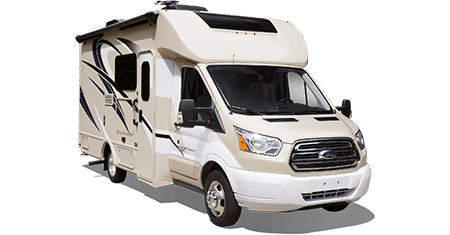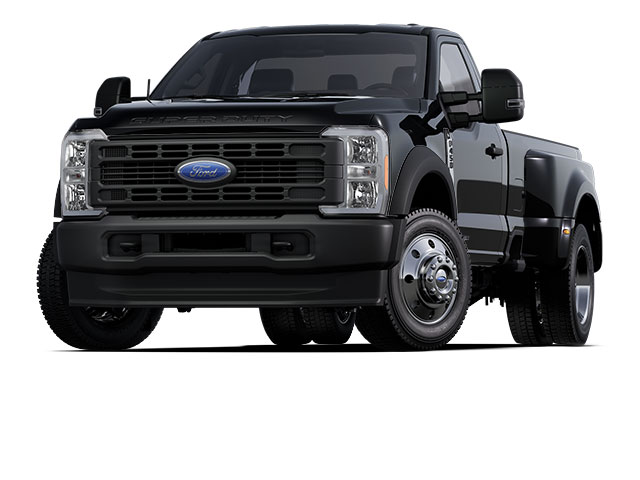
Small RV Trailers for Sale: What You Need to Know Before You Buy!

Small RV trailers have become increasingly popular among travelers seeking the freedom of the open road without the need for a massive vehicle. These compact trailers offer the perfect balance between convenience and comfort, allowing adventurers to explore new destinations with ease. Whether you're a weekend warrior or planning an extended road trip, understanding the ins and outs of small RV trailers for sale is essential before making a purchase. This comprehensive guide will provide you with everything you need to know to make an informed decision.
Types of Small RV Trailers
1. Teardrop Trailers
Teardrop trailers are named for their distinctive shape, resembling a teardrop when viewed from the side. They are lightweight, easy to tow, and typically feature a compact sleeping area and a small kitchen. Ideal for solo travelers or couples, teardrop trailers are perfect for short trips and quick getaways.
2. Pop-Up Campers
Pop-up campers, also known as tent trailers, have collapsible sides that allow them to be compact for towing and expanded when parked. These trailers offer more space than teardrop trailers and often include basic amenities such as a small kitchen, dining area, and sleeping quarters. They are an excellent choice for families or those who need a bit more room.
3. Travel Trailers
Small travel trailers come in various sizes and configurations, offering more amenities and space than teardrop trailers and pop-up campers. They typically include a bathroom, kitchen, dining area, and sleeping quarters. These trailers are suitable for longer trips and provide a more comfortable living experience.
4. A-Frame Trailers
A-frame trailers are compact, hard-sided trailers that fold down for towing and pop up into an A-shaped structure when parked. They offer more protection from the elements than pop-up campers and are easy to set up and take down. These trailers are a great option for those who want a balance between convenience and comfort.
Key Features to Consider
1. Weight and Towing Capacity
One of the most important factors to consider when purchasing a small RV trailer is its weight and your vehicle's towing capacity. Ensure that your vehicle can safely tow the trailer you choose, including any additional weight from cargo, water, and passengers. Check your vehicle's owner's manual or consult with a professional to determine its towing limits.
2. Size and Layout
Consider the size and layout of the trailer to ensure it meets your needs. Think about how many people will be traveling with you and what amenities are essential. Some trailers have a more open layout, while others have separate areas for sleeping, dining, and cooking. Choose a layout that provides the space and functionality you need.
3. Amenities
Different trailers come with various amenities, from basic to luxurious. Common amenities include a kitchen, bathroom, dining area, and sleeping quarters. Determine which amenities are essential for your comfort and convenience. For example, if you plan to camp in remote areas, having a bathroom and kitchen may be crucial.
4. Build Quality and Durability
The build quality and durability of the trailer are important factors to consider, especially if you plan to use it frequently or travel on rough terrain. Look for trailers made with high-quality materials and robust construction. Pay attention to details such as the frame, walls, roof, and flooring. A well-built trailer will last longer and require fewer repairs.
Budget and Financing
1. Cost of the Trailer
The cost of small RV trailers can vary widely based on size, brand, features, and build quality. Set a budget before you start shopping and stick to it. Keep in mind that while it may be tempting to opt for a cheaper model, investing in a higher-quality trailer can save you money in the long run by reducing maintenance and repair costs.
2. Additional Costs
In addition to the purchase price, there are other costs to consider. These include registration, insurance, maintenance, and storage fees. Factor in these additional expenses when setting your budget.
3. Financing Options
If you don't have the funds to purchase a trailer outright, financing options are available. Many dealerships offer financing plans with various terms and interest rates. Shop around for the best deal and read the fine print to understand the terms of the loan.
Where to Buy
1. Dealerships
Dealerships are a common place to buy small RV trailers. They offer a wide selection of new and used trailers and provide services such as financing, warranties, and maintenance. Buying from a dealership can give you peace of mind, as they often thoroughly inspect and service their inventory.
2. Private Sellers
Purchasing from a private seller can sometimes yield a better deal, but it comes with more risks. Make sure to thoroughly inspect the trailer and ask for maintenance records. Consider having a professional inspect the trailer before making a purchase.
3. Online Marketplaces
Online marketplaces such as RV Trader, Craigslist, and eBay offer a vast selection of trailers. While buying online can be convenient, it's essential to exercise caution. Verify the seller's credibility, ask for detailed photos and information, and, if possible, arrange to see the trailer in person before finalizing the purchase.
Inspecting a Used Trailer

1. Exterior Inspection
Check the exterior of the trailer for any signs of damage or wear, such as dents, scratches, or rust. Inspect the roof for leaks, cracks, or soft spots. Examine the tires for wear and ensure they have adequate tread and are properly inflated.
2. Interior Inspection
Inspect the interior for any signs of water damage, mold, or mildew. Check the walls, ceiling, and floor for soft spots or discoloration. Test all appliances, lights, and systems to ensure they are in working order. Pay attention to any unusual odors, which could indicate hidden issues.
3. Mechanical Inspection
If the trailer has any mechanical components, such as brakes, axles, or a generator, have them inspected by a professional. Ensure that the hitch and towing mechanisms are in good condition and compatible with your vehicle.
Maintenance and Upkeep
1. Regular Maintenance
Regular maintenance is crucial to keep your trailer in good condition and extend its lifespan. This includes checking and maintaining the tires, brakes, and lights, inspecting the roof and seals for leaks, and servicing any appliances or systems.
2. Cleaning and Storage
Keep your trailer clean, both inside and out. Regularly clean the exterior to prevent dirt and grime buildup, and keep the interior tidy to avoid pests. When not in use, store your trailer in a safe, secure location, preferably under cover to protect it from the elements.
3. Winterizing
If you live in an area with cold winters, it's essential to winterize your trailer to prevent damage from freezing temperatures. This includes draining the water system, adding antifreeze, and sealing any openings to keep out moisture and pests.
Tips for First-Time Buyers
1. Do Your Research
Take the time to research different types of trailers, brands, and models. Read reviews, watch videos, and join online forums to get insights from other RV enthusiasts. The more you know, the better equipped you'll be to make an informed decision.
2. Take a Test Drive
If possible, take the trailer for a test drive before purchasing. This will give you a feel for how it handles on the road and ensure that it's compatible with your vehicle. Pay attention to how it tows, brakes, and maneuvers.
3. Start Small
If you're new to RVing, consider starting with a smaller, more affordable trailer. This will allow you to get a feel for the RV lifestyle without making a significant investment. You can always upgrade later if you find that you enjoy it and need more space or features.
4. Attend RV Shows
RV shows are a great way to see a variety of trailers in one place and talk to industry experts. You can often find special deals and promotions at these events. Take advantage of the opportunity to ask questions and compare different models.
Conclusion
Small RV trailers offer a unique and flexible way to travel, providing the comforts of home while on the road. By understanding the different types of trailers, key features to consider, and the importance of budget and financing, you can make an informed decision that suits your needs and lifestyle. Whether you're embarking on weekend getaways or long-term adventures, the right salvage rv for sale can make your journeys more enjoyable and memorable. Happy travels!
Related Courses and Certification
Also Online IT Certification Courses & Online Technical Certificate Programs

